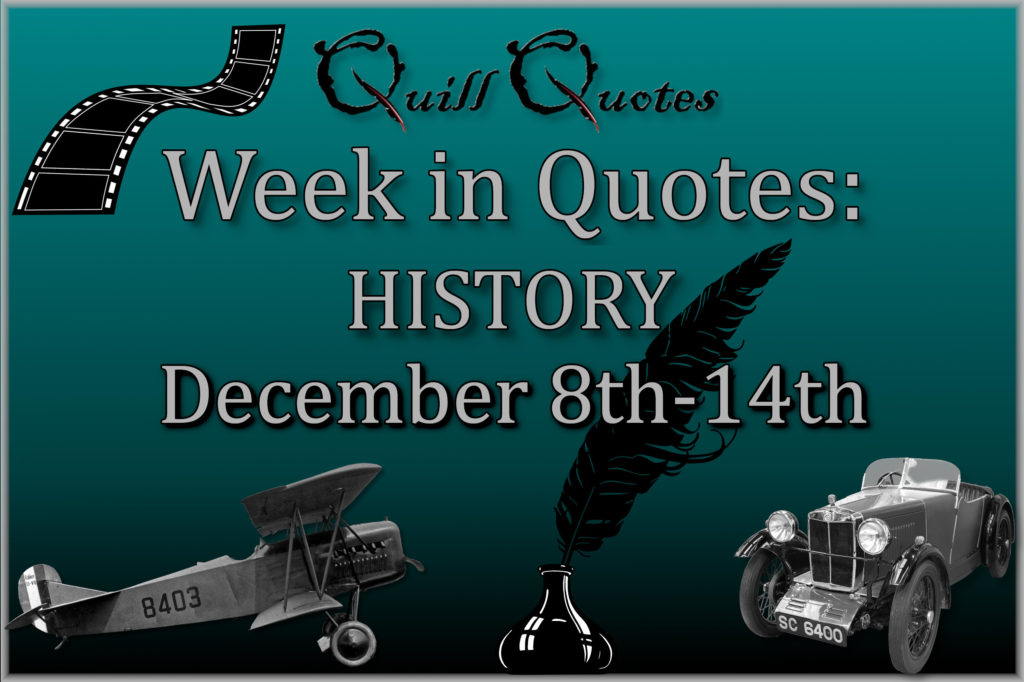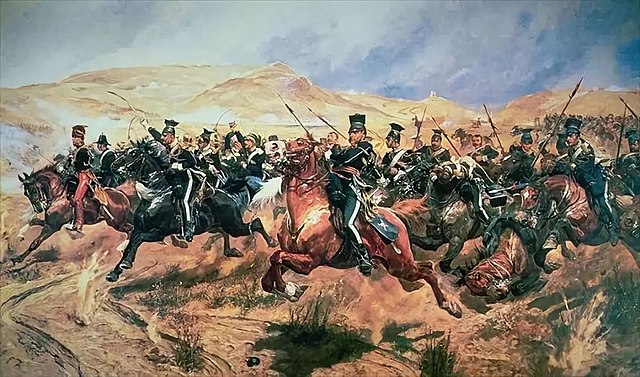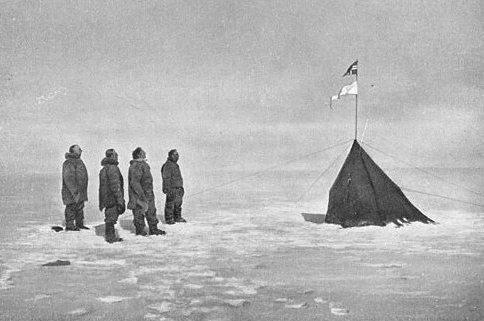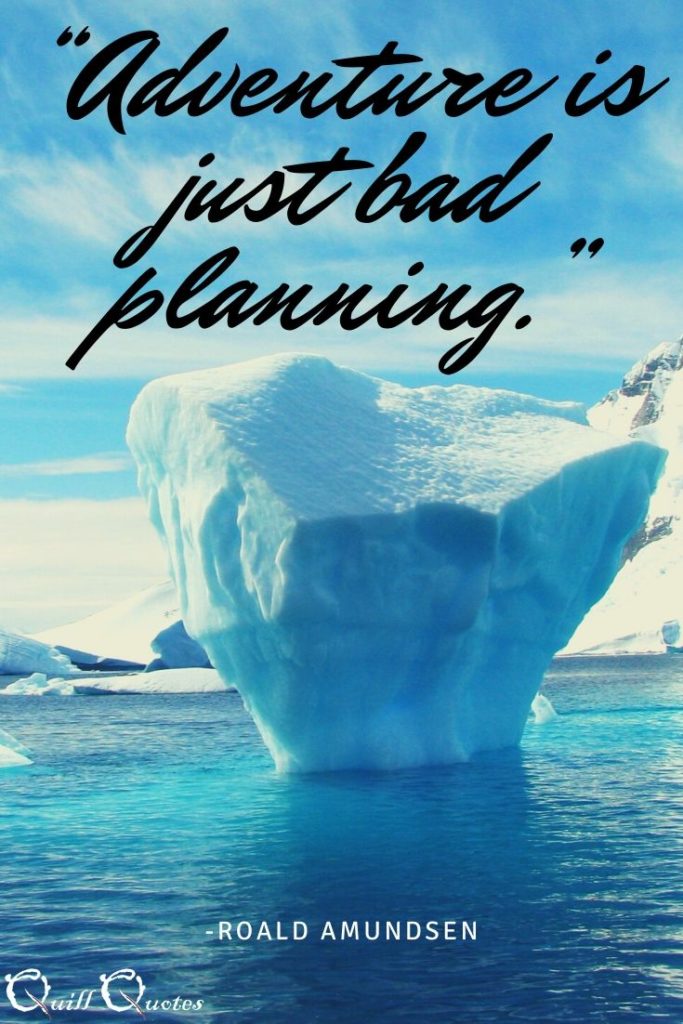There is always much to learn from quotes and their historical significance. Read on for a collection of quotes and general history from December 8th – 14th.

December 8, 1941
“Yesterday, December 7th, 1941 — a date which will live in infamy — the United States of America was suddenly and deliberately attacked by naval and air forces of the Empire of Japan.”
– President Franklin D. Roosevelt
On December 8, 1941, President Franklin D. Roosevelt delivered his famous “Infamy Speech” to a joint session of the U.S. Congress regarding the Japanese attack on Pearl Harbor from the previous day. Seeking to rally America behind the coming war effort, FDR depicted the United States as a victim and highlighted the threat Japan now posed. Furthermore, he emphasized the reported torpedo attacks between Hawaii and San Francisco to show the threat was close to home, effectively silencing the isolationist movement. The speech was overwhelmingly successful! Congress declared war on Japan just 33 minutes after he finished speaking, only a single vote going against the declaration. Effectively ushering the United States into World War II, the speech is one of the most famous in American history.
December 9, 1854
Half a league, half a league,
Half a league onward,
All in the valley of Death
Rode the six hundred.
“Forward, the Light Brigade!
Charge for the guns!” he said.
Into the valley of Death
Rode the six hundred.“Forward, the Light Brigade!”
– Alfred, Lord Tennyson, “The Charge of the Light Brigade”
Was there a man dismayed?
Not though the soldier knew
Someone had blundered.
Theirs not to make reply,
Theirs not to reason why,
Theirs but to do and die.
Into the valley of Death
Rode the six hundred.
On December 9, 1854, the famous poem “The Charge of the Light Brigade” by Alfred, Lord Tennyson was first published in The Examiner. The narrative poem is based on the disastrous Charge of the Light Brigade occurring a few weeks earlier on October 25th at the Battle of Balaclava during the Crimean War. Due to a miscommunication, the British light cavalry (Light Brigade) was sent on a frontal assault against a well-prepared Russian artillery battery instead of preventing the Russians from capturing guns at a different artillery position as intended. This is the “blunder” referred to in the poem’s second stanza. Nevertheless, the cavalry fought bravely in the face of near-certain defeat. As the Poet Laureate of the U.K. at the time, Tennyson wrote the poem to honor the fallen cavalry and commemorate the event. Although now one of his most famous works, he initially signed it only A.T. fearing the traditional structure used might be unbecoming of a poet laureate.

December 10, 1898
“By a protocol signed at Washington August 12, 1898 . . . it was agreed that the United States and Spain would each appoint not more than five commissioners to treat of peace, and that the commissioners so appointed should meet at Paris not later than October 1, 1898, and proceed to the negotiation and conclusion of a treaty of peace, which treaty should be subject to ratification according to the respective constitutional forms of the two countries.”
– U.S. President William McKinley
The Spanish-American War formally ended with the signing of the Treaty of Paris on December 10, 1898, and came into effect on April 11, 1899, following ratification. In the treaty, the United States acquired Puerto Rico, Guam, Cuba, and the Philippines from Spain. The loss of these territories marked the end of the Spanish Empire and the ascension of the United States as a world power.
December 11, 2008
“Now, a lot of people didn’t know him at all – it went through feeder funds, so they wouldn’t even have known anything about Bernie Madoff. But everybody finds a justification for their behavior, and obviously, Bernie had a half dozen justifications in his own mind.”
– Barry Levinson
On December 11, 2008, Bernie Madoff was arrested for the largest Ponzi scheme in world history. As the chairman of Bernard L. Madoff Investment Securities, he defrauded investors of nearly $65 billion, the largest financial fraud in U.S. history. However, other estimates place the actual losses between $10 to $20 billion when the fabricated gains are subtracted. Although the U.S. Securities and Exchange Commission (SEC) had conducted multiple investigations into his business, the fraud was only uncovered when Madoff confessed to his sons, saying it was all “one big lie”. Following his arrest and guilty plea to 11 federal felonies, Madoff was sentenced to 150 years in prison, the maximum allowed.
December 12, 1937
“The cold has come. Having heard from my elder brother that the American warship has sunk the other day I feel very sorry. Having been committed without intention beyond doubt, I apologize on behalf of the soldiers. Please forgive. Here is the money I saved. Please hand it to the American sailors injured.”
– “One of the pupils of the Shin Kozen” in a letter “to the American Sailors”
On December 12, 1937, the American USS Panay was attacked by Japanese aircraft while anchored in the Yangtze River outside Nanjing, China. The attack resulted in the sinking of the Panay, 3 Americans and an Italian reporter killed, and 48 wounded. Occurring 4 years before the U.S. entered WWII, Japan claimed they did not see the American flags painted on the deck and sides of the ship. However, many believe the attack, known as the USS Panay incident, was intentional. Either way, the Japanese government apologized and paid the U.S. an indemnity of $2.2 million, settling the incident.
December 13, 1642
“We believe that this is the mainland coast of the unknown Southland.”
– Abel Tasman
On December 13, 1642, Dutch explorer Abel Tasman sighted New Zealand, becoming the first European to do so. Initially, he believed it to be part of the long-imagined Southland and named it Staten Landt in honor of the Dutch parliament. The Southland or Terra Australis was believed to be a large, undiscovered continent in the Southern Hemisphere required to balance the landmass with that of the Northern Hemisphere. However, once it was discovered that this was not the case, Dutch cartographers renamed the island Nova Zeelandia after the Dutch province of Zeeland.
December 14, 1911
“Never has a man achieved a goal so diametrically opposed to his wishes. The area around the North Pole—devil take it—had fascinated me since childhood, and now here I was at the South Pole. Could anything be more crazy?”
– Roald Amundsen
On December 14, 1911, Norwegian explorer Roald Amundsen’s expedition became the first to reach the South Pole. He originally planned to take the expedition to the North Pole but was beaten by the Americans Frederick Cook and Robert Peary who reached it in 1909. Thus, he rerouted the expedition to the South Pole, sparking much controversy. British explorer Robert Falcon Scott was already leading the Terra Nova expedition to the South Pole but arrived on January 17, 1912, less than five weeks after Amundsen. Tragically, Scott and his four companions all died on the return journey from the pole. In honor of both polar explorers, the U.S. science base at the South Pole is named the Amundsen-Scott South Pole Station.


In case you missed last week’s quotes, see History December 1st – 7th.
To never miss a Quill Quotes post, please subscribe via email and/or follow us on social media!
Leave a Reply